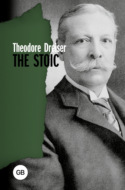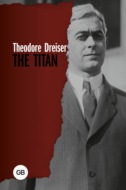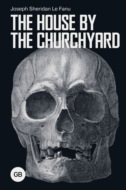Kitabı oku: «The Star Rover», sayfa 4
I am Darrell Standing, born and raised on a quarter section of land in Minnesota, erstwhile professor of agronomy, a prisoner incorrigible in San Quentin, and at present a death-sentenced man in Folsom. I do not know, of Darrell Standing’s experience, these things of which I write and which I have dug from out my store-houses of subconsciousness. I, Darrell Standing, born in Minnesota and soon to die by the rope in California, surely never loved daughters of kings in the courts of kings; nor fought cutlass to cutlass on the swaying decks of ships; nor drowned in the spirit-rooms of ships, guzzling raw liquor to the wassail-shouting and death-singing of seamen, while the ship lifted and crashed on the black-toothed rocks and the water bubbled overhead, beneath, and all about.
Such things are not of Darrell Standing’s experience in the world. Yet I, Darrell Standing, found these things within myself in solitary in San Quentin by means of mechanical self-hypnosis. No more were these experiences Darrell Standing’s than was the word “Samaria” Darrell Standing’s when it leapt to his child lips at sight of a photograph.
One cannot make anything out of nothing. In solitary I could not so make thirty-five pounds of dynamite. Nor in solitary, out of nothing in Darrell Standing’s experience, could I make these wide, far visions of time and space. These things were in the content of my mind, and in my mind I was just beginning to learn my way about.
Chapter VII
So here was my predicament: I knew that within myself was a Golconda of memories of other lives, yet I was unable to do more than flit like a madman through those memories. I had my Golconda but could not mine it.
I remembered the case of Stainton Moses, the clergyman who had been possessed by the personalities of St. Hippolytus, Plotinus, Athenodorus, and of that friend of Erasmus named Grocyn. And when I considered the experiments of Colonel de Rochas, which I had read in tyro fashion in other and busier days, I was convinced that Stainton Moses had, in previous lives, been those personalities that on occasion seemed to possess him. In truth, they were he, they were the links of the chain of recurrence.
But more especially did I dwell upon the experiments of Colonel de Rochas. By means of suitable hypnotic subjects he claimed that he had penetrated backwards through time to the ancestors of his subjects. Thus, the case of Josephine which he describes. She was eighteen years old and she lived at Voiron, in the department of the Isère. Under hypnotism Colonel de Rochas sent her adventuring back through her adolescence, her girlhood, her childhood, breast-infancy, and the silent dark of her mother’s womb, and, still back, through the silence and the dark of the time when she, Josephine, was not yet born, to the light and life of a previous living, when she had been a churlish, suspicious, and embittered old man, by name Jean-Claude Bourdon, who had served his time in the Seventh Artillery at Besançon, and who died at the age of seventy, long bedridden. Yes, and did not Colonel de Rochas in turn hypnotize this shade of Jean-Claude Bourdon, so that he adventured farther back into time, through infancy and birth and the dark of the unborn, until he found again light and life when, as a wicked old woman, he had been Philomène Carteron?
But try as I would with my bright bit of straw in the oozement of light into solitary, I failed to achieve any such definiteness of previous personality. I became convinced, through the failure of my experiments, that only through death could I clearly and coherently resurrect the memories of my previous selves.
But the tides of life ran strong in me. I, Darrell Standing, was so strongly disinclined to die that I refused to let Warden Atherton and Captain Jamie kill me. I was always so innately urged to live that sometimes I think that is why I am still here, eating and sleeping, thinking and dreaming, writing this narrative of my various me’s, and awaiting the incontestable rope that will put an ephemeral period in my long-linked existence.
And then came death in life. I learned the trick, Ed Morrell taught it me, as you shall see. It began through Warden Atherton and Captain Jamie. They must have experienced a recrudescence of panic at thought of the dynamite they believed hidden. They came to me in my dark cell, and they told me plainly that they would jacket me to death if I did not confess where the dynamite was hidden. And they assured me that they would do it officially without any hurt to their own official skins. My death would appear on the prison register as due to natural causes.
Oh, dear, cotton-wool citizen, please believe me when I tell you that men are killed in prisons to-day as they have always been killed since the first prisons were built by men.
I well knew the terror, the agony, and the danger of the jacket. Oh, the men spirit-broken by the jacket! I have seen them. And I have seen men crippled for life by the jacket. I have seen men, strong men, men so strong that their physical stamina resisted all attacks of prison tuberculosis, after a prolonged bout with the jacket, their resistance broken down, fade away, and die of tuberculosis within six months. There was Slant-Eyed Wilson, with an unguessed weak heart of fear, who died in the jacket within the first hour while the unconvinced inefficient of a prison doctor looked on and smiled. And I have seen a man confess, after half an hour in the jacket, truths and fictions that cost him years of credits.
I had had my own experiences. At the present moment half a thousand scars mark my body. They go to the scaffold with me. Did I live a hundred years to come those same scars in the end would go to the grave with me.
Perhaps, dear citizen who permits and pays his hang-dogs to lace the jacket for you – perhaps you are unacquainted with the jacket. Let me describe, it, so that you will understand the method by which I achieved death in life, became a temporary master of time and space, and vaulted the prison walls to rove among the stars.
Have you ever seen canvas tarpaulins or rubber blankets with brass eyelets set in along the edges? Then imagine a piece of stout canvas, some four and one-half feet in length, with large and heavy brass eyelets running down both edges. The width of this canvas is never the full girth of the human body it is to surround. The width is also irregular – broadest at the shoulders, next broadest at the hips, and narrowest at the waist.
The jacket is spread on the floor. The man who is to be punished, or who is to be tortured for confession, is told to lie face-downward on the flat canvas. If he refuses, he is man-handled. After that he lays himself down with a will, which is the will of the hang-dogs, which is your will, dear citizen, who feeds and fees the hang-dogs for doing this thing for you.
The man lies face-downward. The edges of the jacket are brought as nearly together as possible along the centre of the man’s back. Then a rope, on the principle of a shoe-lace, is run through the eyelets, and on the principle of a shoe-lacing the man is laced in the canvas. Only he is laced more severely than any person ever laces his shoe. They call it “cinching” in prison lingo. On occasion, when the guards are cruel and vindictive, or when the command has come down from above, in order to insure the severity of the lacing the guards press with their feet into the man’s back as they draw the lacing tight.
Have you ever laced your shoe too tightly, and, after half an hour, experienced that excruciating pain across the instep of the obstructed circulation? And do you remember that after a few minutes of such pain you simply could not walk another step and had to untie the shoe-lace and ease the pressure? Very well. Then try to imagine your whole body so laced, only much more tightly, and that the squeeze, instead of being merely on the instep of one foot, is on your entire trunk, compressing to the seeming of death your heart, your lungs, and all the rest of your vital and essential organs.
I remember the first time they gave me the jacket down in the dungeons. It was at the beginning of my incorrigibility, shortly after my entrance to prison, when I was weaving my loom-task of a hundred yards a day in the jute-mill and finishing two hours ahead of the average day. Yes, and my jute-sacking was far above the average demanded. I was sent to the jacket that first time, according to the prison books, because of “skips” and “breaks” in the cloth, in short, because my work was defective. Of course this was ridiculous. In truth, I was sent to the jacket because I, a new convict, a master of efficiency, a trained expert in the elimination of waste motion, had elected to tell the stupid head weaver a few things he did not know about his business. And the head weaver, with Captain Jamie present, had me called to the table where atrocious weaving, such as could never have gone through my loom, was exhibited against me. Three times was I thus called to the table. The third calling meant punishment according to the loom-room rules. My punishment was twenty-four hours in the jacket.
They took me down into the dungeons. I was ordered to lie face-downward on the canvas spread flat upon the floor. I refused. One of the guards, Morrison, gulletted me with his thumbs. Mobins, the dungeon trusty, a convict himself, struck me repeatedly with his fists. In the end I lay down as directed. And, because of the struggle I had vexed them with, they laced me extra tight. Then they rolled me over like a log upon my back.
It did not seem so bad at first. When they closed my door, with clang and clash of levered boltage, and left me in the utter dark, it was eleven o’clock in the morning. For a few minutes I was aware merely of an uncomfortable constriction which I fondly believed would ease as I grew accustomed to it. On the contrary, my heart began to thump and my lungs seemed unable to draw sufficient air for my blood. This sense of suffocation was terrorizing, and every thump of the heart threatened to burst my already bursting lungs.
After what seemed hours, and after what, out of my countless succeeding experiences in the jacket I can now fairly conclude to have been not more than half-an-hour, I began to cry out, to yell, to scream, to howl, in a very madness of dying. The trouble was the pain that had arisen in my heart. It was a sharp, definite pain, similar to that of pleurisy, except that it stabbed hotly through the heart itself.
To die is not a difficult thing, but to die in such slow and horrible fashion was maddening. Like a trapped beast of the wild, I experienced ecstasies of fear, and yelled and howled until I realized that such vocal exercise merely stabbed my heart more hotly and at the same time consumed much of the little air in my lungs.
I gave over and lay quiet for a long time – an eternity it seemed then, though now I am confident that it could have been no longer than a quarter of an hour. I grew dizzy with semi-asphyxiation, and my heart thumped until it seemed surely it would burst the canvas that bound me. Again I lost control of myself and set up a mad howling for help.
In the midst of this I heard a voice from the next dungeon.
“Shut up,” it shouted, though only faintly it percolated to me. “Shut up. You make me tired.”
“I’m dying,” I cried out.
“Pound your ear and forget it,” was the reply.
“But I am dying,” I insisted.
“Then why worry?” came the voice. “You’ll be dead pretty quick an’ out of it. Go ahead and croak, but don’t make so much noise about it. You’re interruptin’ my beauty sleep.”
So angered was I by this callous indifference that I recovered self-control and was guilty of no more than smothered groans. This endured an endless time – possibly ten minutes; and then a tingling numbness set up in all my body. It was like pins and needles, and for as long as it hurt like pins and needles I kept my head. But when the prickling of the multitudinous darts ceased to hurt and only the numbness remained and continued verging into greater numbness I once more grew frightened.
“How am I goin’ to get a wink of sleep?” my neighbour complained. “I ain’t any more happy than you. My jacket’s just as tight as yourn, an’ I want to sleep an’ forget it.”
“How long have you been in?” I asked, thinking him a new-comer compared to the centuries I had already suffered.
“Since day before yesterday,” was his answer.
“I mean in the jacket,” I amended.
“Since day before yesterday, brother.”
“My God!” I screamed.
“Yes, brother, fifty straight hours, an’ you don’t hear me raisin’ a roar about it. They cinched me with their feet in my back. I am some tight, believe me. You ain’t the only one that’s got troubles. You ain’t ben in an hour yet.”
“I’ve been in hours and hours,” I protested.
“Brother, you may think so, but it don’t make it so. I’m just tellin’ you you ain’t ben in an hour. I heard ’m lacin’ you.”
The thing was incredible. Already, in less than an hour, I had died a thousand deaths. And yet this neighbour, balanced and equable, calm-voiced and almost beneficent despite the harshness of his first remarks, had been in the jacket fifty hours!
“How much longer are they going to keep you in?” I asked.
“The Lord only knows. Captain Jamie is real peeved with me, an’ he won’t let me out until I’m about croakin’. Now, brother, I’m going to give you the tip. The only way is shut your face an’ forget it. Yellin’ an’ hollerin’ don’t win you no money in this joint. An’ the way to forget is to forget. Just get to rememberin’ every girl you ever knew. That’ll eat up hours for you. Mebbe you’ll feel yourself gettin’ woozy. Well, get woozy. You can’t beat that for killin’ time. An’ when the girls won’t hold you, get to thinkin’ of the fellows you got it in for, an’ what you’d do to ’em if you got a chance, an’ what you’re goin’ to do to ’em when you get that same chance.”
That man was Philadelphia Red. Because of prior conviction he was serving fifty years for highway robbery committed on the streets of Alameda. He had already served a dozen of his years at the time he talked to me in the jacket, and that was seven years ago. He was one of the forty lifers who were double-crossed by Cecil Winwood. For that offence Philadelphia Red lost his credits. He is middle-aged now, and he is still in San Quentin. If he survives he will be an old man when they let him out.
I lived through my twenty-four hours, and I have never been the same man since. Oh, I don’t mean physically, although next morning, when they unlaced me, I was semi-paralyzed and in such a state of collapse that the guards had to kick me in the ribs to make me crawl to my feet. But I was a changed man mentally, morally. The brute physical torture of it was humiliation and affront to my spirit and to my sense of justice. Such discipline does not sweeten a man. I emerged from that first jacketing filled with a bitterness and a passionate hatred that has only increased through the years. My God – when I think of the things men have done to me! Twenty-four hours in the jacket! Little I thought that morning when they kicked me to my feet that the time would come when twenty-four hours in the jacket meant nothing; when a hundred hours in the jacket found me smiling when they released me; when two hundred and forty hours in the jacket found the same smile on my lips.
Yes, two hundred and forty hours. Dear cotton-woolly citizen, do you know what that means? It means ten days and ten nights in the jacket. Of course, such things are not done anywhere in the Christian world nineteen hundred years after Christ. I don’t ask you to believe me. I don’t believe it myself. I merely know that it was done to me in San Quentin, and that I lived to laugh at them and to compel them to get rid of me by swinging me off because I bloodied a guard’s nose.
I write these lines to-day in the Year of Our Lord 1913, and to-day, in the Year of Our Lord 1913, men are lying in the jacket in the dungeons of San Quentin.
I shall never forget, as long as further living and further lives be vouchsafed me, my parting from Philadelphia Red that morning. He had then been seventy-four hours in the jacket.
“Well, brother, you’re still alive an’ kickin’,” he called to me, as I was totteringly dragged from my cell into the corridor of dungeons.
“Shut up, you, Red,” the sergeant snarled at him.
“Forget it,” was the retort.
“I’ll get you yet, Red,” the sergeant threatened.
“Think so?” Philadelphia Red queried sweetly, ere his tones turned to savageness. “Why, you old stiff, you couldn’t get nothin’. You couldn’t get a free lunch, much less the job you’ve got now, if it wasn’t for your brother’s pull. An’ I guess we all ain’t mistaken on the stink of the place where your brother’s pull comes from.”
It was admirable – the spirit of man rising above its extremity, fearless of the hurt any brute of the system could inflict.
“Well, so long, brother,” Philadelphia Red next called to me. “So long. Be good, an’ love the Warden. An’ if you see ’em, just tell ’em that you saw me but that you didn’t see me saw.”
The sergeant was red with rage, and, by the receipt of various kicks and blows, I paid for Red’s pleasantry.
Chapter VIII
In solitary, in Cell One, Warden Atherton and Captain Jamie proceeded to put me to the inquisition. As Warden Atherton said to me:
“Standing, you’re going to come across with that dynamite, or I’ll kill you in the jacket. Harder cases than you have come across before I got done with them. You’ve got your choice – dynamite or curtains.”
“Then I guess it is curtains,” I answered, “because I don’t know of any dynamite.”
This irritated the Warden to immediate action. “Lie down,” he commanded.
I obeyed, for I had learned the folly of fighting three or four strong men. They laced me tightly, and gave me a hundred hours. Once each twenty-four hours I was permitted a drink of water. I had no desire for food, nor was food offered me. Toward the end of the hundred hours Jackson, the prison doctor, examined my physical condition several times.
But I had grown too used to the jacket during my incorrigible days to let a single jacketing injure me. Naturally, it weakened me, took the life out of me; but I had learned muscular tricks for stealing a little space while they were lacing me. At the end of the first hundred hours’ bout I was worn and tired, but that was all. Another bout of this duration they gave me, after a day and a night to recuperate. And then they gave one hundred and fifty hours. Much of this time I was physically numb and mentally delirious. Also, by an effort of will, I managed to sleep away long hours.
Next, Warden Atherton tried a variation. I was given irregular intervals of jacket and recuperation. I never knew when I was to go into the jacket. Thus I would have ten hours’ recuperation, and do twenty in the jacket; or I would receive only four hours’ rest. At the most unexpected hours of the night my door would clang open and the changing guards would lace me. Sometimes rhythms were instituted. Thus, for three days and nights I alternated eight hours in the jacket and eight hours out. And then, just as I was growing accustomed to this rhythm, it was suddenly altered and I was given two days and nights straight.
And ever the eternal question was propounded to me: Where was the dynamite? Sometimes Warden Atherton was furious with me. On occasion, when I had endured an extra severe jacketing, he almost pleaded with me to confess. Once he even promised me three months in the hospital of absolute rest and good food, and then the trusty job in the library.
Dr. Jackson, a weak stick of a creature with a smattering of medicine, grew sceptical. He insisted that jacketing, no matter how prolonged, could never kill me; and his insistence was a challenge to the Warden to continue the attempt.
“These lean college guys ’d fool the devil,” he grumbled. “They’re tougher ’n raw-hide. Just the same we’ll wear him down. Standing, you hear me. What you’ve got ain’t a caution to what you’re going to get. You might as well come across now and save trouble. I’m a man of my word. You’ve heard me say dynamite or curtains. Well, that stands. Take your choice.”
“Surely you don’t think I’m holding out because I enjoy it?” I managed to gasp, for at the moment Pie-Face Jones was forcing his foot into my back in order to cinch me tighter, while I was trying with my muscle to steal slack. “There is nothing to confess. Why, I’d cut off my right hand right now to be able to lead you to any dynamite.”
“Oh, I’ve seen your educated kind before,” he sneered. “You get wheels in your head, some of you, that make you stick to any old idea. You get baulky, like horses. Tighter, Jones; that ain’t half a cinch. Standing, if you don’t come across it’s curtains. I stick by that.”
One compensation I learned. As one grows weaker one is less susceptible to suffering. There is less hurt because there is less to hurt. And the man already well weakened grows weaker more slowly. It is of common knowledge that unusually strong men suffer more severely from ordinary sicknesses than do women or invalids. As the reserves of strength are consumed there is less strength to lose. After all superfluous flesh is gone what is left is stringy and resistant. In fact, that was what I became – a sort of string-like organism that persisted in living.
Morrell and Oppenheimer were sorry for me, and rapped me sympathy and advice. Oppenheimer told me he had gone through it, and worse, and still lived.
“Don’t let them beat you out,” he spelled with his knuckles. “Don’t let them kill you, for that would suit them. And don’t squeal on the plant.”
“But there isn’t any plant,” I rapped back with the edge of the sole of my shoe against the grating – I was in the jacket at the time and so could talk only with my feet. “I don’t know anything about the damned dynamite.”
“That’s right,” Oppenheimer praised. “He’s the stuff, ain’t he, Ed?”
Which goes to show what chance I had of convincing Warden Atherton of my ignorance of the dynamite. His very persistence in the quest convinced a man like Jake Oppenheimer, who could only admire me for the fortitude with which I kept a close mouth.
During this first period of the jacket-inquisition I managed to sleep a great deal. My dreams were remarkable. Of course they were vivid and real, as most dreams are. What made them remarkable was their coherence and continuity. Often I addressed bodies of scientists on abstruse subjects, reading aloud to them carefully prepared papers on my own researches or on my own deductions from the researches and experiments of others. When I awakened my voice would seem still ringing in my ears, while my eyes still could see typed on the white paper whole sentences and paragraphs that I could read again and marvel at ere the vision faded. In passing, I call attention to the fact that at the time I noted that the process of reasoning employed in these dream speeches was invariably deductive.
Then there was a great farming section, extending north and south for hundreds of miles in some part of the temperate regions, with a climate and flora and fauna largely resembling those of California. Not once, nor twice, but thousands of different times I journeyed through this dream-region. The point I desire to call attention to was that it was always the same region. No essential feature of it ever differed in the different dreams. Thus it was always an eight-hour drive behind mountain horses from the alfalfa meadows (where I kept many Jersey cows) to the straggly village beside the big dry creek, where I caught the little narrow-gauge train. Every land-mark in that eight-hour drive in the mountain buckboard, every tree, every mountain, every ford and bridge, every ridge and eroded hillside was ever the same.
In this coherent, rational farm-region of my strait-jacket dreams the minor details, according to season and to the labour of men, did change. Thus on the upland pastures behind my alfalfa meadows I developed a new farm with the aid of Angora goats. Here I marked the changes with every dream-visit, and the changes were in accordance with the time that elapsed between visits.
Oh, those brush-covered slopes! How I can see them now just as when the goats were first introduced. And how I remembered the consequent changes – the paths beginning to form as the goats literally ate their way through the dense thickets; the disappearance of the younger, smaller bushes that were not too tall for total browsing; the vistas that formed in all directions through the older, taller bushes, as the goats browsed as high as they could stand and reach on their hind legs; the driftage of the pasture grasses that followed in the wake of the clearing by the goats. Yes, the continuity of such dreaming was its charm. Came the day when the men with axes chopped down all the taller brush so as to give the goats access to the leaves and buds and bark. Came the day, in winter weather, when the dry denuded skeletons of all these bushes were gathered into heaps and burned. Came the day when I moved my goats on to other brush-impregnable hillsides, with following in their wake my cattle, pasturing knee-deep in the succulent grasses that grew where before had been only brush. And came the day when I moved my cattle on, and my plough-men went back and forth across the slopes’ contour – ploughing the rich sod under to rot to live and crawling humous in which to bed my seeds of crops to be.
Yes, and in my dreams, often, I got off the little narrow-gauge train where the straggly village stood beside the big dry creek, and got into the buckboard behind my mountain horses, and drove hour by hour past all the old familiar landmarks of my alfalfa meadows, and on to my upland pastures where my rotated crops of corn and barley and clover were ripe for harvesting and where I watched my men engaged in the harvest, while beyond, ever climbing, my goats browsed the higher slopes of brush into cleared, tilled fields.
But these were dreams, frank dreams, fancied adventures of my deductive subconscious mind. Quite unlike them, as you shall see, were my other adventures when I passed through the gates of the living death and relived the reality of the other lives that had been mine in other days.
In the long hours of waking in the jacket I found that I dwelt a great deal on Cecil Winwood, the poet-forger who had wantonly put all this torment on me, and who was even then at liberty out in the free world again. No; I did not hate him. The word is too weak. There is no word in the language strong enough to describe my feelings. I can say only that I knew the gnawing of a desire for vengeance on him that was a pain in itself and that exceeded all the bounds of language. I shall not tell you of the hours I devoted to plans of torture on him, nor of the diabolical means and devices of torture that I invented for him. Just one example. I was enamoured of the ancient trick whereby an iron basin, containing a rat, is fastened to a man’s body. The only way out for the rat is through the man himself. As I say, I was enamoured of this until I realized that such a death was too quick, whereupon I dwelt long and favourably on the Moorish trick of – but no, I promised to relate no further of this matter. Let it suffice that many of my pain-maddening waking hours were devoted to dreams of vengeance on Cecil Winwood.
Ücretsiz ön izlemeyi tamamladınız.








